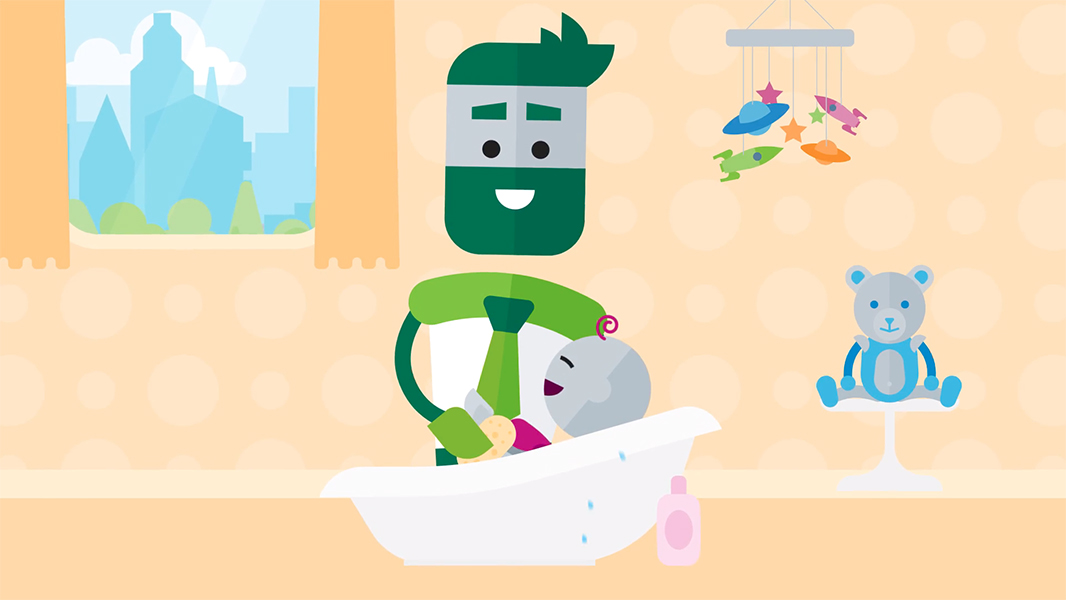
Some parents fall in love with their babies immediately, but for most parents it takes time to get to know their baby.
Did you know by the time you are 24 weeks pregnant your baby knows your voice and will prefer it to others when they are born? Your unborn baby will enjoy it when you talk and sing to them.
From birth your baby will enjoy having skin-to-skin time with you, looking at your face and your baby will love it when you chat to them. Your newborn baby does not need toys, they just want to be close to you.
Try to remember that when your baby cries, they are not cross with you, but are instead trying to tell you that they don’t feel good. Just knowing that you are there for them makes them feel safe and, in the longer term, more able to manage their emotions. Watch out for your baby’s cues as they are communicating with you all the time.
By two months old you will notice that your baby coos and joins in conversations with you. Although babies want to interact babies are very busy learning, even when they are sleeping. Sometimes they might need a bit of space from interacting, but they’ll soon be ready to communicate again. Babies like to experience different things but don’t need lots of stimulation – everyday life is interesting. Things that will delight your baby are gazing at you, feeling you hold them, listening to you sing to them and chatting with you.
When your baby gets a little bit older, tuning into what your baby is thinking and feeling can help with their development and your understanding of your baby. They will be really interested in the world around them, but you are the most important thing in your baby’s world. You make your baby feel safe enough to explore and learn about the world but they also still need lots of comfort. Your baby will want to share their adventures with you. You will get to know your baby’s sense of humour and you and your baby can share funny moments together.
Sometimes your baby will do things you do not want them to do. Children don’t mean to be naughty, their brain development means that until they are older they don’t have the self-control to stop themselves from doing something, even if they know they shouldn’t. Instead, you should try moving things away that they shouldn’t touch to help them out. Babies begin to become interested in playing with other babies or children when they are around two, but it takes them a lot longer to learn to share.
Your two-year-old will be curious and energetic, they should be showing you that they have their own ideas of what they want to do, which will sometimes be different to your own. Going out to the park, popping bubbles, rolling on the grass and splashing in the bath and other everyday activities are all good fun for you and your two-year-old. Cuddles, time sitting and chatting with you, you joining in with their play are golden moments for your little one.
Sometimes caring for a baby is tough and tiring, but babies are also loving, kind and fun. Take time to watch and wonder at your baby and enjoy the joy.
If you are struggling with your feelings towards your baby or child, there are services that can help. Speak to your midwife, health visitor or GP for more advice.






